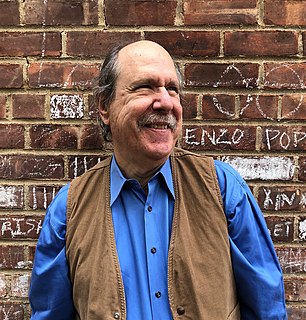A Quote by Steven Knight
I think certain periods of history don't get dealt with because I think historians, and it's their job, but they look back and look for patterns. They look for sequences and they look for reasons, and certain periods of history don't fit with the general pattern of 1500 to the 20th century, during which there's the creation of the United States. At this time of 1814, two nations who would eventually become close allies were at war with each other, so it doesn't quite fit.
Related Quotes
I think certain periods of history don't get dealt with because I think historians, and it's their job, but they look back and look for patterns. They look for sequences and they look for reasons, and certain periods of history don't fit with the general pattern of 1500 to the 20th century, during which there's the creation of the United States.
I’m a big fan of history—applying the lessons as well as the joys and sadness. If we pay attention, we would see how we affect each other. In terms of time, we are not that far from one another. If we were to look back a century, it would seem like a long time; but, if we look at it by decades then it’s only 10 years, and by generations it’s only five.
Another thing is, people lose perspective. It is a cultural trait in America to think in terms of very short time periods. My advice is: learn history. Take responsibility for history. Recognise that sometimes things take a long time to change. If you look at your history in this country, you find that for most rights, people had to struggle. People in this era forget that and quite often think they are entitled, and are weary of struggling over any period of time
If two or three hundred years from now an earthbound civilization is dying ... and they look back at the opportunity that we have here at the close of the twentieth century to move out into space and they see that we didn't do anything with it ... I don't want history to judge us on having blown this opportunity, and I think history will judge us on this more than on any other issue.
You can fit two United States and maybe a third one into the entire continent of Africa, but on a map we make the entire continent of Africa look like the size of the United States, which is why a lot of people don't know that Africa is a continent. They think it's a country because it looks as big as we do.
I believe that my children, who are young, will look back on the early years of the 21st century in rather the same way I look back on the middle of the 20th: as a time when seemingly respectable people supported discrimination against Americans simply because those Americans were different from themselves.
If you want to understand what's going to happen, you can't look in the rearview mirror into the United States' history, because that's done now. You have to look out at the rest of the world and look at the history of the rest of the world, and what you'll see is demonstrations and counter-demonstrations are going to become the norm. We'll have a big march, then they'll have a big march, we'll have a big rally and they'll have a big rally. That will be one of the features. Again, a pro-regime and pro-opposition media system, that will become a feature.
Just look around, in life, there's people who want to date people who look like themselves, and there are people who are just looking for a good fit. And a lot of times, a good fit is someone different than yourself. I'm not one to get too hung up on outside appearances. I find people attractive for more subtle reasons than just the way they look.





































